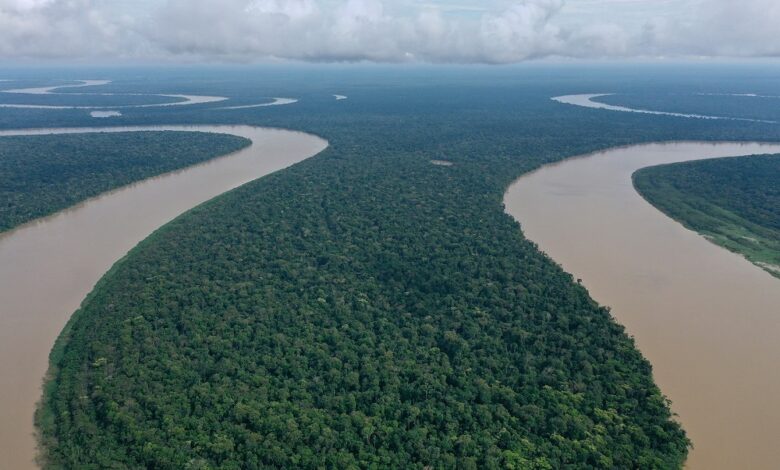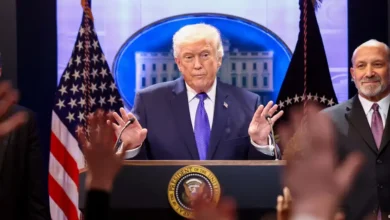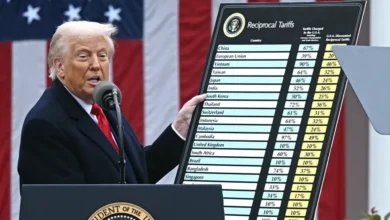
By Sonia Guajajara
Special to The Times Kuwait
The climate disasters unfolding around the world, including unprecedented floods in Brazil, Africa, and China, heat waves in Asia and the Middle East, and persistent droughts in Europe and Latin America, show that the planet is at a critical juncture. Fortunately, we can still seize the opportunity to redefine our paradigms of economic and social development. Alongside preserving and restoring our forests, we must end our dependence on fossil fuels and embrace renewables.
With our ancestral knowledge and respect for nature, indigenous peoples are an invaluable asset in confronting this challenge. Despite comprising only 5 percent of the global population, our lands preserve more than 80 percent of the world’s biodiversity. We know that when humans try to dominate nature, nature always responds. Today’s climate tragedies reflect this dynamic. They show why we must transcend our individual experiences to reach a higher state of consciousness vis-à-vis nature.
To that end, we in Brazil are committed to combating deforestation and advancing the demarcation, protection, and environmental management of indigenous territories. Such measures are essential to preserve biodiversity, limit carbon-dioxide emissions, and avoid the point of no return for essential biomes like the Amazon. Brazil is also focusing on the energy we produce and consume, a challenge that involves complex debates and compels stark choices.
But climate change is a global crisis. Unsustainable economic models built on fossil-fuel energy disproportionately affect the most vulnerable populations. By abandoning outdated development models based on the destruction of nature, we can embark on a path that is not only more sustainable, but also more just.
Despite the clear dangers presented by fossil fuels, significant investments in these energy sources continue to go unchallenged. A common justification is that burning fossil fuels yields economic benefits, but the oil industry is highly income-concentrating, yielding substantial gains only for a few, and negative externalities — not least pollution, corruption, and displacement — for the many.
Yet the human, financial, and environmental costs of our fossil-fuel fixation are increasingly clear. Consider the recent catastrophic floods in Rio Grande do Sul, Brazil, which killed hundreds of people and displaced many more; or the unprecedented drought that left thousands without water and food in the Amazon, home to the planet’s largest watershed; or the fires in the Pantanal, the largest wetland in the world. While billions of taxpayer dollars are spent supporting recovery from these kinds of disasters, billions more are still going to subsidize the fossil-fuel industry and its shareholders.
What will it take for governments to prioritize investments in climate-change mitigation and adaptation over these destructive subsidies? The G7 and other advanced economies have a responsibility to demonstrate more leadership on this issue. The effects of climate change are tangible threats that undermine growth and security everywhere. As heads of state and government, especially those from the G7 and G20, prepare for upcoming climate meetings in Azerbaijan and Brazil, they should ask themselves how many more climate disasters they want to preside over.
We have the right to decide what kind of world we want to build. Do we continue on the path marked out by an exploitative logic that is increasingly turning against us, or do we seize this moment, change course, and start valuing ancestral knowledge? If we choose the latter option — as we must — we will need to secure the free, prior, and informed consent of all communities involved in any new projects, not only to protect rights but also to ensure more effective results.
The technology and knowledge for a just transition already exists. Many countries have already made significant advances in this direction, proving that a sustainable future is possible and economically viable. The tragedies unfolding around us ought to be a wake-up call for all countries to end fossil-fuel exploration, reduce usage as much as possible, and invest in renewable energy, the bioeconomy, and resilient infrastructure.
One big, outstanding issue is that financial flows still need to be brought into line with the targets set under the Paris climate agreement. Not only should annual investments in climate action increase substantially, but northern countries must take responsibility for mobilizing climate financing to the Global South this decade. Only then can we ensure a just and accelerated energy transition and truly protect nature, allowing it to play its indispensable role in stabilizing the planetary systems on which human life and prosperity depends.
The climate crisis is an opportunity to re-evaluate our choices and priorities. Nature has already given us many warnings, and it also offers us solutions. But mitigating climate change, eliminating fossil fuels, preserving and restoring forests, and protecting indigenous territories will not happen automatically. Each requires funding, concrete policies, and global cooperation. We will hear plenty of lofty, ambitious speeches in the months ahead, but if these are not backed by comprehensive implementation plans, they will amount to hot air. We already have more of that than we want.

Sonia Guajajara
Brazil’s Minister of Indigenous Peoples.
Copyright: Project Syndicate, 2024.
www.project-syndicate.org












